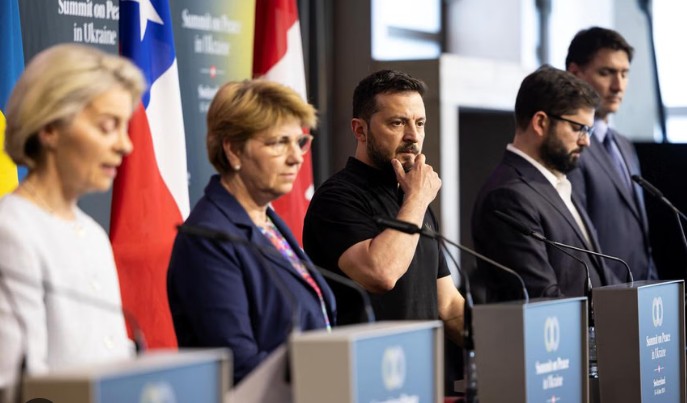Moscow Says UK and EU Incapable of Participating in Ukraine Peace Talks

Moscow has sharply criticized the role of the United Kingdom and the European Union in the ongoing conflict in Ukraine, declaring that neither is capable of participating in peace talks or acting as intermediaries in negotiations. Vassily Nebenzia, Russia’s ambassador to the United Nations, stated that both the UK and the EU are blinded by a “manic desire” to see Russia defeated on the battlefield by Ukrainian forces.
Nebenzia emphasized that the UK and EU are not suitable to serve as either guarantors or facilitators for any potential ceasefire between Russia and Ukraine. “Both are incapable of negotiation,” Nebenzia remarked, adding that their continued involvement in the conflict had undermined any possibility for meaningful dialogue.
Criticism of Past Western Mediation Efforts
Russia’s comments were not limited to recent events but also referenced the failures of previous Western-led peace efforts. Nebenzia pointed to France and Germany’s role as guarantors of the 2014 Minsk agreements, which were intended to halt hostilities between Ukraine and the breakaway regions of Donetsk and Luhansk. However, the Minsk accords ultimately failed to prevent further escalation, with both sides accusing each other of violations.
Moscow argues that European involvement in the peace process has been ineffective, leading to a cycle of failed diplomacy. Nebenzia’s criticism also extended to the broader Western influence on the conflict, claiming that European states have prioritized their geopolitical interests over the well-being of Ukraine or the region as a whole.
Trump’s Special Envoy Echoes Moscow’s Concerns
Keith Kellogg, U.S. President Donald Trump’s special envoy for ending the conflict in Ukraine, has echoed similar sentiments, asserting that European states should not be part of future peace talks. Kellogg’s remarks come amid growing calls for a shift in the approach to the conflict, with some advocating for a new round of negotiations led by more neutral parties.
Kellogg, a former U.S. National Security Advisor, noted that while Europe has a vested interest in the outcome of the war, its historical role in the conflict has disqualified it from taking an active role in negotiating peace. His comments align with Russia’s view that European powers, particularly France and Germany, have failed to serve as impartial actors in past attempts to mediate a settlement.
A Divided Diplomatic Landscape
As the war in Ukraine enters its second year, the diplomatic landscape remains deeply divided, with Russia and the West at odds over how to end the conflict. Moscow’s rejection of European and British involvement in peace talks is likely to further complicate efforts for a negotiated settlement. While Western powers, including the UK and EU, continue to support Ukraine through military and economic aid, their role in peace negotiations remains a contentious issue.
As both sides prepare for what may be a prolonged conflict, the question of who will ultimately facilitate a peace deal remains unanswered. The failure of past diplomatic efforts, coupled with the ongoing hostilities on the ground, leaves little hope for a breakthrough in the immediate future.
